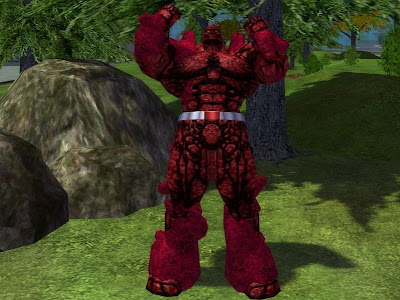
I've had a pretty steady group over the last 10 years, really almost 20 for most of us but let's call it 10. I have had new players join and old players leave but getting them integrated into the current campaign hasn't really been a problem. Then recently in the Necessary Evil game I had a player actively avoid joining the party even though he knew that was one of the goals of the session. This has caused me to think about this a little more and I thought I would share.
It's a tradition at this point in my D&D games that if you join in the middle of an adventure then I will integrate you into the next session regardless of all other considerations. Most of the time this means the character is found chained to a wall upside down and naked or in a cage or in a sack but I can be flexible sometimes. My wife happened to join the last D&D campaign while they were in Freeport between dungeons so I had the temple they were working for assign her to the party as reinforcements - simple. Another player died during that campaign during a sea voyage and he was found at the next stop as the petrified victim of a basilisk who was then restored to fleshood. So I try not to stay in a rut, but with D&D I typically force them in somehow during the next session. It's really not that difficult and my players are aware of how it works and warn their friends up front that it may not be a graceful entrance. It's worked for a long time now and everyone ususally remembers how their add-in character made their entrance.
Now with Savage Worlds and with Rifts/Super Powered level games in general I do not have this rule. These types of campaigns tend to be less dungeony and so require less forced insertion. The characters also tend to have different motivations and different methods of travel that are more flexible than low-level D&D. If I know that a new character is coming in I can plant rumors of a shadowy figure seen at a crime scene the PC's are investigating and lead up to the introduction. If I don't they can be appear in the middle of a fight with a flash of light and be hit by a stray energy blast and join in. They might have had a vision of the party that compelled them to seek the characters out - it's possible to work in some plot reasons that might not show up in D&D. So I tend to leave it mostly up to the player as to why they are there - I will tell them when they appear and what the general situation will be, but it's up to them to come up with why.
So in this last session of NE, I had a new player joining in and he sent me his backstory in advance and right away there were problems. The whole premise of the game is that you are super villains who are forced to do some allegedly good acts to throw off an alien invasion because all of the heroes are dead. Well, he made a super hero.
I decided to let it go but then during the session he couldn't really come up with a good reason to be where the party was (despite my dropping him in to the same location - I just left the reason up to him) and he ends up shooting at the PC's - who have not attacked him or even noticed him really at this point - and this changes the tenor of the scenario. Now he's a hostile and my villains have a lot of "vengeful" and "bloodthirsty" hindrances and they reacted appropriately by going after him, so he ran away.
Now this didn't wreck the adventure as the players still accomplished their mission but it did leave the players and me feeling like it was less than totally successful. It actually made me feel like the player in question was actively avoiding joining the team or that he was trying to show off how bad-ass his character was (he wasn't). The party was in Japan to recruit or capture a retired supervillain. It's not tough to come up with a reason for another villain to be there and to help join in - maybe he's an old rival, maybe he hurt a family member and you've spent years tracking him down. Maybe you want a sample of his DNA to try and replicate his powers. Maybe you've been hired to kill him by some shadowy organization he used to work for. Maybe he's a relative and you want to get back at him for abandoning you - those are all examples I gave in a 5-minute brainstorming session and none of them were acceptable although nothing else was used in their place. Maybe it has nothing to do with the villain - maybe the monks at the monastery have something you want. When a fight breaks out there's the perfect time to get your target and then join in the fight to cover your tracks. In the end no real reason was stated and it probably would have been better if he hadn't made an appearance at all - everyone else would have been happier with the evening.
So I spent a lot of time thinking about this and decided maybe I screwed it up somehow by putting it in Japan etc. and that I would give him another chance next session when the team was back in their home city. The other players were a little miffed at him too but were willing to give it another go too. More on that next time.

